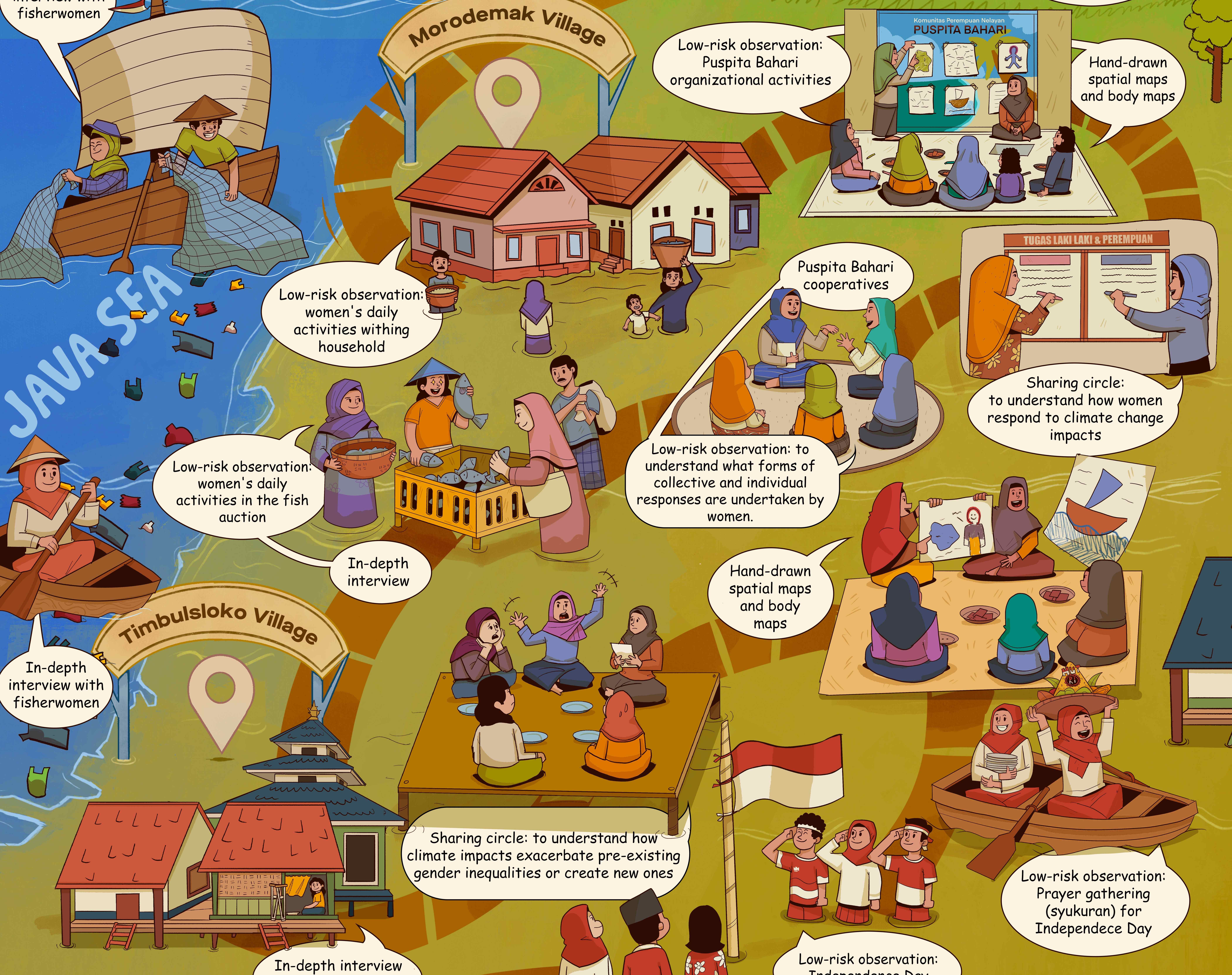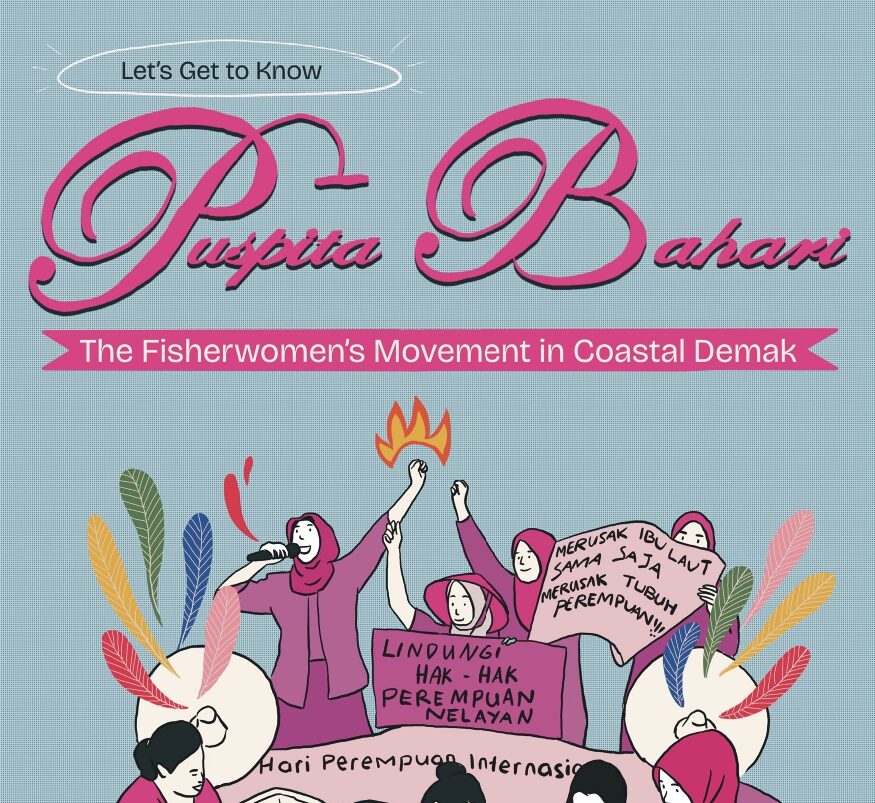
The Gender Jeopardy boardgame is the product of a collaboration between GENERATE, Sanggar Seroja – a collective of transgender women living in Kampung Duri, Jakarta, boardgame designer Mahawira Dillon, and illustrator Kartika Luthfiyah. Gender Jeopardy translates lived knowledge into a creative tool for trying to better understand intersectional disadvantage in practice, build empathy, and transform attitudes and practices at grassroots and policy levels.
Sanggar Seroja was founded in 2016 by two transgender women who had more than 20 years of experience in the arts, particularly dance, lenong (traditional theatre of Betawi people in Jakarta) and theatre. Bringing together a group of art lovers, Sanggar Seroja specialises in theatre performances at festivals and cultural events, drawing on traditional and contemporary forms of performance to generate income while forming a hub for social support and solidarity for transgender women in the Kampung Duri; which has, since the 1970s, provided a refuge for queer people seeking livelihoods and community in Jakarta.
Our vision was for a boardgame that could immerse players in the intersectional layering of disadvantages faced by transgender women living in Indonesia. It addresses how gender works through all aspects of life to deliver and compound socioeconomic, physical, and psychological harms. Gender Jeopardy explores the unique vulnerabilities of transgender women to climate change, pollution, and disasters, as well as social stigma and exclusion and precarious livelihoods. At the same time, it seeks to spotlight the creativity, resilience and leadership of transgender women in the face of this multiple marginalisation.

The 160 cards that make up the game – which you can play as a cisgender man or woman or transgender woman – present a working analysis of multiple overlapping disadvantages and risks, and how they can (or not) be navigated through different social support systems. From livelihood choices and salaries, to the impacts of different crises – both generalised and specific to the community – the player gets to experience what life is like to live in the shoes of a transgender woman. The crises represented on the cards, such as health crises, violent discrimination, family rejection, precarious livelihoods, pollution, and environmental disasters, are drawn directly from the lived experiences of our collaborators. The game aims to help players to better understand how gender inequalities and discrimination intersect with broader structural forces (including socio-economic justice, education, environmental justice – pollution, water and sanitation, poor quality housing etc, health and so on) to limit the capacities of certain communities, particularly sexual and gender diverse people, to respond to climate change and disasters. In this way, it highlights broader ways in which gender norms, practices and power exacerbates the vulnerabilities of marginalised groups, and disproportionately increases their environmental burdens.
The game has been played at GENERATE events that bring communities, local leaders and government staff, and representatives from human rights, gender equality and environmental and climate change organisations into conversation with transgender women who were involved in the project. In turn they can then speak directly to their experiences and share first-hand accounts of the crises represented on the game cards. This combination of game-playing and personal voicing of vulnerabilities has been incredibly powerful and all participants have recorded being significantly moved and pledging to change their own practices and attitudes moving forward. Engagement in the project has also led to new programmes and training on gender and social inclusion at key national environmental organisations.
The boardgame has been printed in both English and Bahasa Indonesia and relates to our Trans Superheroes for Climate project.



